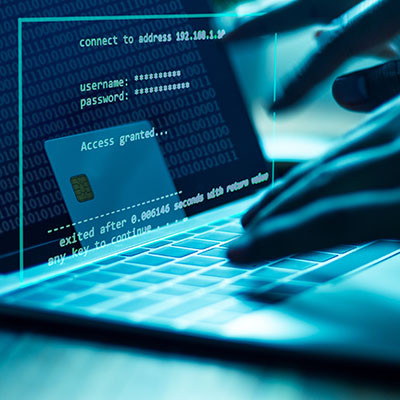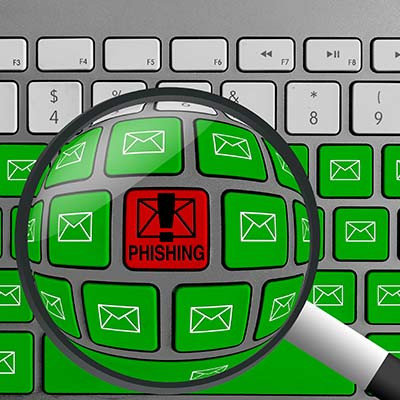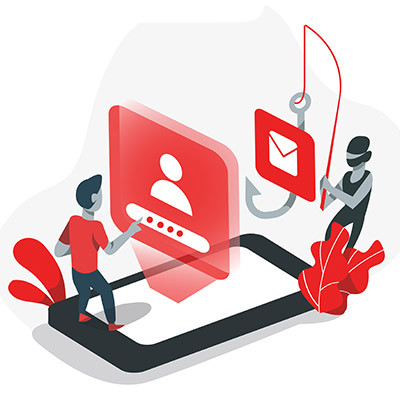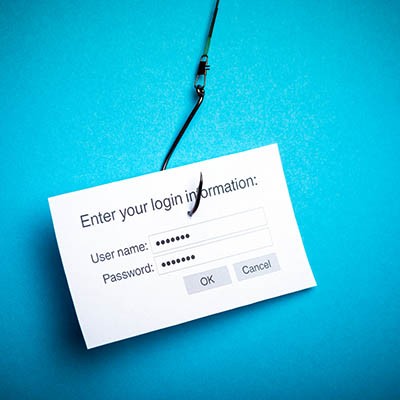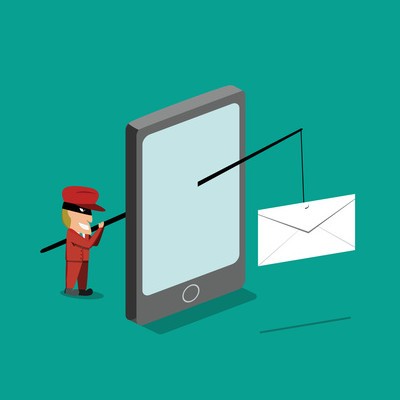
NuTech Services Blog
NuTech Services has been serving the Grand Blanc area since 2003, providing IT Support such as technical helpdesk support, computer support, and consulting to small and medium-sized businesses.
0 Comments
Business owners often get unsolicited emails from individuals who want to sell them goods, services, or products. Depending on the message, they might even come across as a bit suspicious, prompting you to question the authenticity of the email. If you’re not careful, you might accidentally expose your organization by clicking on the wrong link in the wrong email, thus falling victim to the oldest trick in the book: the phishing attack.
Social engineering is a dangerous threat that could derail even the most prepared business. Even if you implement the best security solutions on the market, they mean nothing if a cybercriminal tricks you into acting impulsively. Let’s go over specific methods of social engineering that hackers might use to trick you.
How often do you check social media only to find your news feed clogged with your friends and family sharing the results of quizzes like, “Which Star Wars character are you,” or “What’s your superhero name based on your birthday.” While these quizzes might seem harmless on the surface, they often hide a far more sinister agenda, one which uses the personally identifiable information provided to them for nefarious purposes.
Network security isn’t just for large, high-profile enterprises; even small businesses need to take it seriously. All businesses have something of value to hackers, and if you don’t believe this is the case for your organization, think again. All data is valuable to hackers, and you need to do everything in your power to protect it—especially against threats like Agent Tesla, the latest version of phishing malware designed to steal your data.
The situation surrounding the hack against Colonial Pipeline has only become more complex as new information has come to light, each new discovery providing more insights and potentially actionable takeaways. Let’s examine some of the biggest developments surrounding the attack, and what they will likely mean for overall cybersecurity from this point forward.
GoDaddy—the domain registrar and web-hosting company once famed for its risqué advertisements—is facing some significant backlash for a much different reason. On December 14th, GoDaddy’s employees received an email that appeared to be from the company, promising a holiday bonus. However, while the email was from the company as it appeared to be, it was actually a phishing test that the hosting provider decided to run.
As serious as they are, cyberattacks are not always labeled with the most serious-sounding names. We are, of course, talking about phishing: the use of spoofed email addresses and fraudulent messages to get hold of data, or whatever goal the attacker has in mind. One of the silliest-sounding versions of phishing—smishing—has proven to be of particular risk.
Since the outbreak of the COVID-19 coronavirus has wreaked havoc across the globe, there has been a lot of hope and effort put towards developing a vaccine against it. Unfortunately, just as some experiments have produced promising results, hackers have begun targeting the research centers responsible. Let’s look at this situation to see what it can teach us.
Microsoft’s latest Security Intelligence Report cites phishing attacks as the most prevalent cyberthreat. With the COVID-19 outbreak pushing large numbers of workers to their own homes, it is almost assuredly still the case. As a result, it is extremely important that you and your staff understand how to spot potential phishing attacks and what to do when confronted with an attack. Today, we will provide you some tips on how to identify and remediate such attacks.
For many businesses, email plays a crucial role in the dessemination of information. Whether it is simply interacting with clients or pushing directions to individuals, email is a simple and efficient way to communicate. One problem that organizations are running into is that individuals are being inundated with social engineering messages called phishing. This strategy is causing major operational problems for businesses, from malware to data breaches to extended downtime. For this week’s tip, we identify what exactly phishing is and how it is used to the detriment of many businesses and other organizations.
When someone starts talking about social engineering, people often get confused. They think we’re talking about cloning. While having two of something you love may not be terrible, the social engineering we routinely cite is much, much worse. Social engineering is the act of using social interactions to get people to make cybersecurity mistakes. Today, we’ll take a look at social engineering and how it can have a negative effect on your business.
Social engineering is a very important component of many modern cyberattacks, as the popularity of phishing scams goes to show. Protecting yourself from phishing scams will require you to be able to identify them. For today’s tip, we’ll go over a few warning signs that someone may be trying to phish you through your email.
Users seem to have a bit of a blind spot when it comes to solutions put out by Google, particularly the risks associated with Gmail. It’s almost odd to say: a security threat leverages Gmail. Unfortunately, it isn’t unheard of, as a phishing scam has been leveraging Gmail and its cooperation with Google Calendar for some time now.
We’ve all caught the obvious spam email, like the message that is clearly bogus, or the offer that is definitely too good to be true.
We’re going to confidently assume none of our readers are getting tricked by Nigerian Princes or getting roped into order virility drugs from an unsolicited email. The real threat comes from the more clever phishing attacks. Let’s take a look.
Chances are, you’ve heard of “phishing” - a cybercriminal’s scam that steals data, access credentials, and other sensitive information by fooling a user into thinking they are providing this information to someone who is supposed to have access to it. However, there are a few different kinds of phishing, based on how it is carried out. Here, we’ll discuss the realities of spear phishing, and the risks it poses to your business.
There’s a big reason why phishing is a primary threat to businesses, and it’s because this method gives hackers a relatively risk-free way of gaining access to a network or other resources. Even being aware of the issue is often not enough to prevent it, as hackers are known to get quite aggressive and crafty with their phishing campaigns. If only a fraction of the 57 billion phishing emails that go out every year are taken seriously, hackers make quite a bit of profit off of users.
One of the crazy things about hackers is that they will do whatever it takes to ensure that they steal as much information and sensitive data as possible. One of the more innovative ways that hackers spread threats is through spam. Unwanted messages have grown from simple annoyances, to the spread of unwanted software and malware, all the way to sophisticated attacks on targeted individuals known as phishing attacks. Do you have ways to secure your business?
Tag Cloud
Software
Smartphones
Business
Efficiency
Hosted Solutions
Business Computing
Best Practices
Collaboration
Mobile Devices
Innovation
Cybersecurity
Communication
Productivity
Hackers
Quick Tips
Workplace Tips
Malware
VoIP
IT Services
Microsoft
Small Business
Backup
Email
Cloud
Computer
Network Security
Internet
Data
Technology
Smartphone
Tip of the Week
Android
Users
Google
IT Support
Hardware
Security
Privacy
Miscellaneous
User Tips
Upcoming Events
| No events |
Recent Comments
No comments yet.
Latest Blog Entry
Card skimming is a very real problem for companies and individuals alike, but there will always be those who are more impacted by these kinds of financial scams—particularly those who rely on prepaid cards provided by the government for food assistance and so on.
Latest News
NuTech Services launches new website!
NuTech Services is proud to announce the launch of our new website at www.nutechology.com. The goal of the new website is to make it easier for our existing clients to submit and manage support requests, and provide more information about our services for prospective clients.
Read more ...
